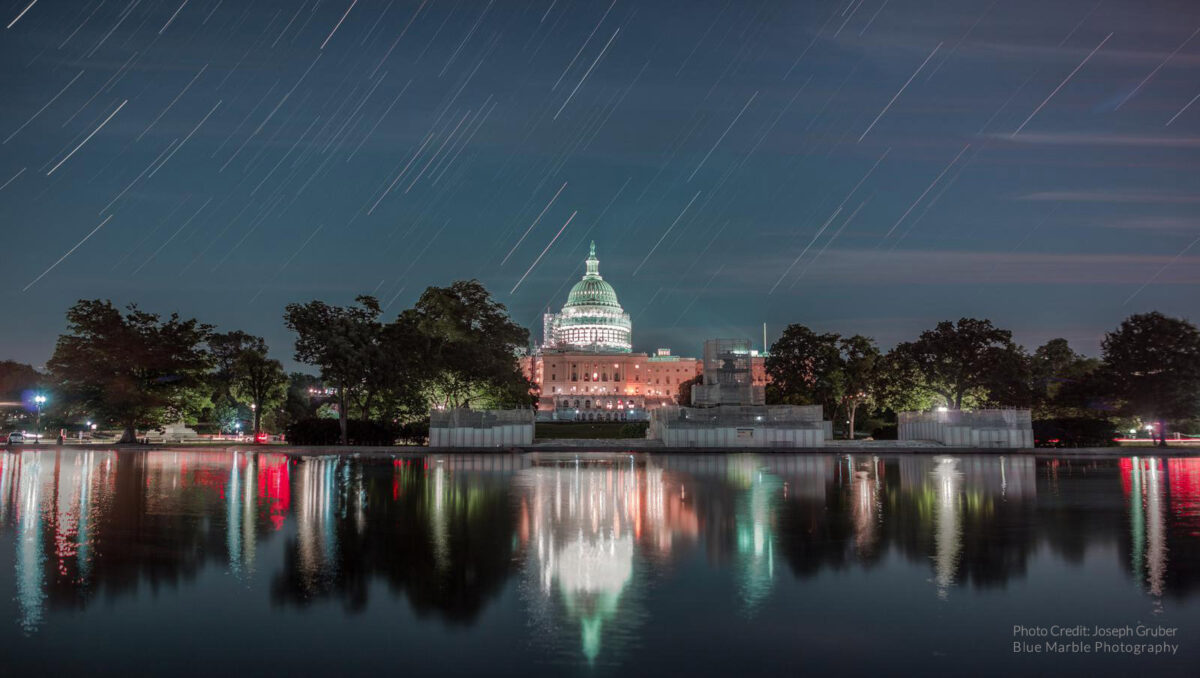The Space Advocate • Jun 14, 2023
The Space Advocate Newsletter, June 2023
From the Chief of Space Policy

Houston, we have a debt deal.
After months of uncertainty, the U.S. Congress passed legislation to avoid a national default in exchange for two years of spending caps on “discretionary” spending. Mandatory spending, which is automatically spent by law and accounts for nearly ¾ of all U.S. expenditures, was notably untouched.
NASA, however, sits firmly in the “discretionary” section of U.S. spending and is therefore subject to these new limits. A natural question, then, is how will NASA’s (and The Planetary Society’s) priorities be impacted by these new limits?
The short answer is: it’s too early to tell, but the outcome will probably not be good.
The deal provides $703,651,000,000 to be split among all non-defense discretionary government agencies, essentially freezing the amount available at 2023 levels. Leaders of the congressional appropriations committees will dole out portions of this amount to 11 separate subcommittees, each with responsibility for funding its own portion of the federal government.
NASA lives within the Commerce, Justice, and Science (CJS) subcommittee, where it stands shoulder-to-budgetary-shoulder with the National Science Foundation, the Commerce Department, and the Justice Department (as well as a smattering of very small agencies). The allocation this committee receives sets the size of the pie NASA will compete for. Absent a larger pie, any increases to NASA must come from decreases to these other agencies.
In 2023, the allocation for the CJS account was about $86 billion. But the Biden Administration's proposed 2024 budget granted increases to every agency, spending more than $91 billion:
| Dept | 2024 request | YOY Increase |
|---|---|---|
| Justice | 39.7 billion | 6% |
| Commerce | 12.3 billion | 11% |
| NSF | 11.3 billion | 18% |
| NASA | 27.2 billion | 7% |
| Total | 90.5 billion | 11% |
If allocations are doled out exactly as they were in 2023, the CJS subcommittee would have to fit $91 billion of programs into an $86 billion bag — something will have to give.
The CJS committee could still choose to fund NASA’s full 7% increase. I hope they do. It would, however, require cuts to the Justice Department and law enforcement, the National Science Foundation, or programs like NOAA (the National Oceanic and Atmospheric Administration) within the Commerce Department. That’s not impossible, but historically, it has been politically challenging to do so.
It’s also important to remember that the debt deal provides a spending ceiling, not a floor. As I was finishing this newsletter, Rep. Kay Granger (R-TX), Chair of the House Appropriations Committee, released a statement saying she intends to pursue additional spending cuts, equivalent to FY 2022 levels, for all federal agencies. In NASA’s case this would represent $3 billion below the 2024 proposal, which according to NASA, would “threaten NASA’s ability to continue making critical advancements in all science disciplines, and threaten NASA’s international leadership in areas of national priority” such as Mars Sample Return, missions to Venus, and Artemis. Recent inflation compounds the significance of any cuts, and this represents a serious threat to progress in NASA’s mission.
Of course, the House is only one branch of Congress. The Senate will take a more generous approach to spending, given the constraints of the deal, but with the political chasm separating the two parties, uncertainty remains for NASA’s budget future.
Until next time,
Casey Dreier
Chief of Space Policy
The Planetary Society
Space Policy Highlights

Deputy Administrator Melroy: NASA "unlikely" to get full FY 2024 budget request (spacepolicyonline.com) “We do have to face the reality of the debt ceiling agreement and what might happen to our 2024 budget request. We recognize that it’s unlikely we will get the full request. And we know that it’s going to create challenges for us in the future. So I think we’re going to have to be making some hard decisions this year.”

NASA seeks to shore up congressional support for Artemis (spacenews.com) "As NASA faces both short-term and long-term uncertainty about its funding, the agency is turning to its most powerful advocates: its astronauts. The four members of the Artemis 2 crew, named in April, were in Washington last week, spending parts of two days meeting with members of Congress. The three Americans and one Canadian assigned to the mission, slated to be the first crew flight to go to the moon in more than half a century, reported a warm reception from their meetings."

Nearly two decades after NASA, China and Europe eye commercial cargo plans (arstechnica.com) "NASA's commercial cargo program was ultimately successful because it picked good companies, invested substantially from the beginning, and was able to provide technical expertise when needed. Even so, from the time of the announcement of the COTS program, it took nearly seven years until the first supply ship docked at the space station. Hopefully planners in Europe and China are as patient."

State Department framework seeks to coordinate its space policy activities (spacenews.com) "The State Department published May 30 the Strategic Framework for Space Policy, a first-of-its-kind document that outlines the efforts by the department to use diplomacy to advance space policy goals and also use space to advance broader diplomatic aims. A new State Department space policy framework is intended to align and guide ongoing work on space diplomacy by the department, including its work to support the Artemis Accords."
Planetary Radio: Space Policy Edition

The policy implications of active SETI
Would meeting an extraterrestrial civilization be good or bad for humanity? Astronomer Dr. Jacob Haqq Misra argues that knowing the outcome in advance is fundamentally impossible, which results in a range of policy implications. Should we camouflage Earth's technosignatures or pour money into perhaps the most transformative event in human history? Should we fear the dark or embrace the unknown?


 Explore Worlds
Explore Worlds Find Life
Find Life Defend Earth
Defend Earth

